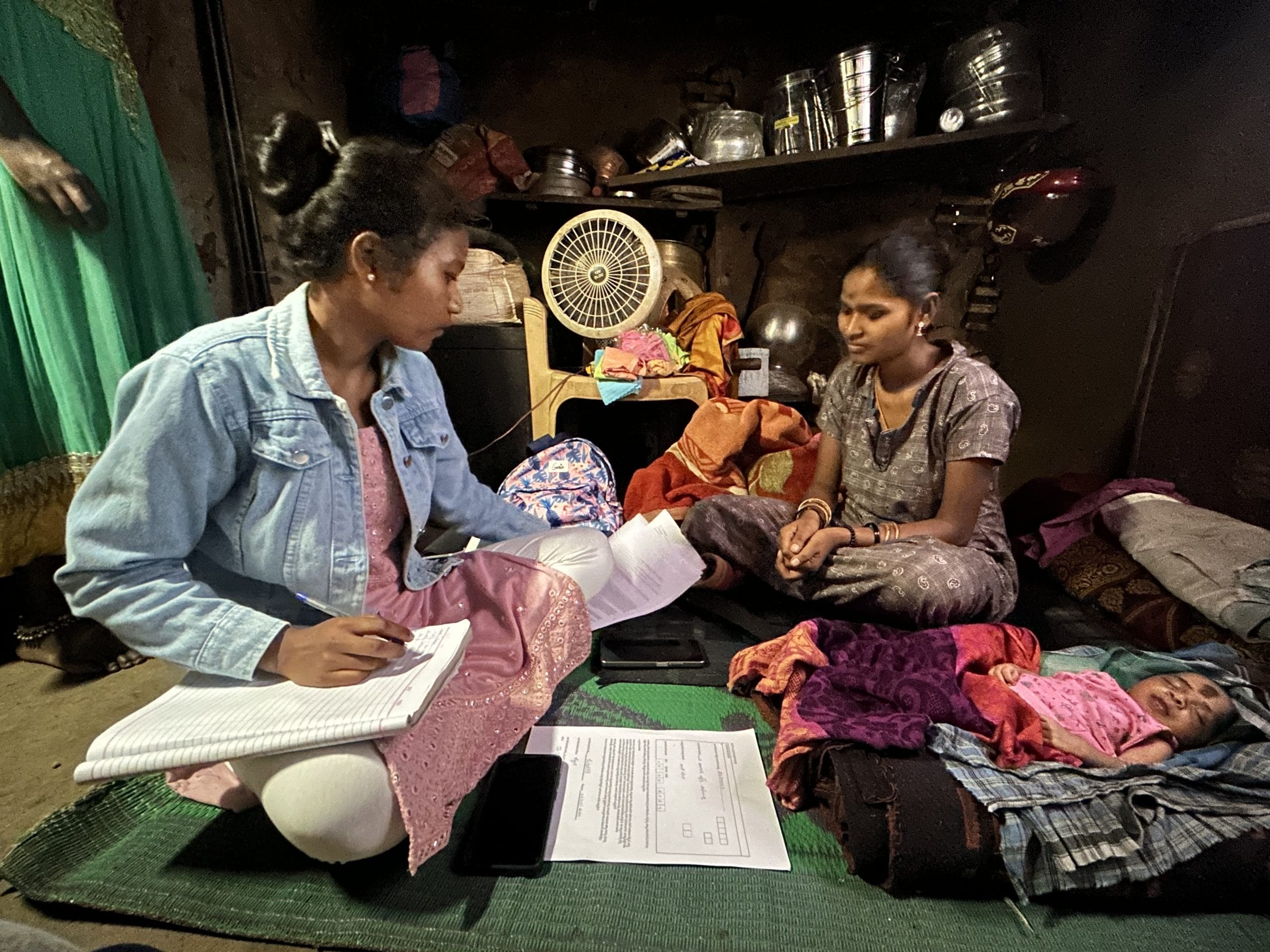
CHIGURU Adivasi Birth Cohort Study
Duration of project
(2021 to 2026)
CHIGURU Adivasi Birth Cohort Study is indeed the first large-scale Adivasi birth cohort study in India.
born to parents who use substances such as tobacco and alcohol face an elevated risk of various adverse outcomes, spanning emotional, social, behavioral, delay in milestones and development, and cognitive challenges. Within adivasi communities, where malnutrition rates are disproportionately high and substance use is on the rise, these factors may perpetuate intergenerational developmental disadvantages. However, research on the long-term health consequences of parental substance use on children post-birth remains limited. The Chiguru Adivasi birth cohort aims to explore how parental substance use influences child growth and developmental outcomes in Adivasi communities across southern Karnataka.
The Developmental Origins of Health and Disease (DOHaD) framework posits that early-life exposure to factors such as poor nutrition, stress, and harmful chemicals shapes both short-term physical growth and neurodevelopment, as well as long-term risks for non-communicable diseases. Notably, a mother’s nutritional status and history of alcohol use significantly impact her child’s physical growth characteristics.
Furthermore, exposure to smoking and drinking by parents of newborns directly disrupts their ability to absorb and provide essential nutrition to their children. This interference in proper development can have indirect consequences for mother and child nutrition, as resources may be diverted away from essentials like food, medical care, and education. Additionally, second-hand smoke exposure, prevalent in family settings, further affects children’s well-being.
This study aims to prospectively assess the harmful effects of parental use of tobacco and alcohol on the risk of adverse child health and developmental outcomes.
The primary objective of the study is to explore the relationship between parental use of tobacco and alcohol on child malnutrition
Secondary objectives
1) To investigate the relationship between parental use of tobacco and alcohol on child developmental delay
2) To examine the interaction between parental use of alcohol and tobacco on child developmental outcomes and
3) To identify individual/household level factors that could protect adivasi children from harmful effects of parental substance use.
The research design involves a longitudinal cohort study, where postnatal women, their partners, and other household members are recruited. The total duration of the study is five years (2021-2026). This is the first large-scale Adivasi birth cohort study to examine the effects of substance use among parents and other family members after delivery on infant growth and developmental indices. Information on the household socio-demographics, wealth index, diet, delivery information, depression, social support, morbidity status, substance use details, and child development with anthropometric details in baseline and follow-up visits are recorded. The study targets to recruit a sample size of 650 newborns and 5000 family members. The primary outcome is child growth parameters whereas the secondary outcome is early childhood developmental milestones assessed through gross motor, fine motor, language, and social domain. The data collection team and biomedical team visit on the same day or subsequent day as per the household members’ convenience to complete anthropometric measurements and for blood collection for the specific laboratory investigation planned under the study. Periodic follow-up visits are scheduled after baseline at 3rd, 6th, 12th, 18th, 24th, and 36th months. In all visits, consent will be obtained.
The field enrollment commenced on 15-05-2023 and the team has approached 236 delivered women. Of the total who were approached, 192 mothers consented to participate, marking an enrollment rate of 81.3%, remaining eighteen did not provide consent were dropped, six infants died, five stillbirths, and twelve were untraceable.This figure represented 30% of the target against 640 and with a total family enrollment of 865 individuals against an expected 5000. We observed around 26.5% of home deliveries, providing significant insight into the delivery preferences within the study participants. The research team successfully collected 389 blood samples so far(March 2024), among them 176 mothers, 114 fathers, and 99 other family members.These samples were assessed for complete blood count at VGKK lab, samples were processed further, and serum samples were stored in freeze-resistant cryovials at -20 degrees Celsius and later at -80 degrees celsius ultra-low deep freezer maintained at IIPH Biorepository.
Prashanth N Srinivas
Yogish Channa Basappa
Tanya Seshadri
Chandrashekar Kottagi
IIPH:
Suresh S Shapeti
Prafulla Shriyan
Giridhara R Babu
Maithili Karthik
Praveen Kumar
Field teams:
Muniraju
Prabhusway
Asha
Muttswamy
Inchara
Dundamma
Jadeswamy
Parvati
Chaithra
Sami
Rathnamma
Padeyappa
Nagesh
Rangappa
Siddha
